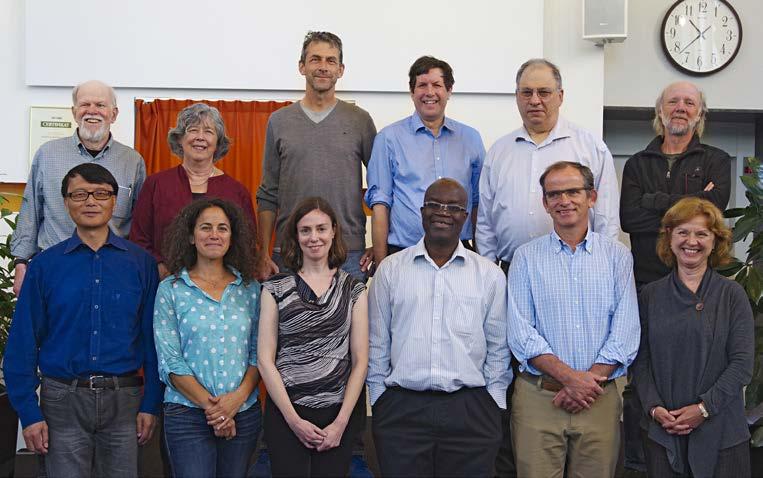STOCKHOLM RESILIENCE CENTRE
New funding HENRIK ÖSTERBLOM and OLOF OLSSON received SEK 7.8 million from the Marianne and Marcus Wallenberg Foundation for the project “Sustainability science, dialogues and novel technologies for understanding and managing ocean ecosystem trade-offs”. The project will use autonomous vessels and artificial intelligence to better understand ecosystem interactions between forage
Henrik Österblom
Olof Olsson
Johan Enqvist
My Sellberg
Jan Kuiper
JOHAN ENQVIST received a three-year mobility grant from the Swedish Research Council to look at how the 2018 water crisis in Cape Town affected the inhabitants’ water use and environmental awareness. “My focus is on mapping values, beliefs and social norms to see how they shape habits and behaviour,” Enqvist explains. Although employed by the Stockholm Resilience Centre, he will be working primarily from the African Climate & Development Initiative at the University of Cape Town.
MY SELLBERG received just under SEK 1 million from Formas in order to better understand the barriers, enablers, benefits and trade-offs of diversifying agriculture towards increased production of fruits, vegetables and legumes in the region surrounding Lake Mälaren and Stockholm. The project is co-designed with Södertälje Municipality – a Swedish frontrunner on sustainable and healthy public meals and food businesses.
JAN KUIPER received a four-year mobility grant from Formas to further develop the Nature Futures Framework. It focuses on creating positive visions and exploring people’s desired relationships with nature. Kuiper will continue to develop the framework as part of an ongoing case study on the development of the Hollandse Duinen national urban park in the Netherlands.
Curry (University of Alaska Fairbanks), will invite inhabitants from the village of Wainwright on Alaska’s North Slope to take photographs that represent their own perspectives and experiences. During the second year, the researchers will conduct a series of behavioural economic experiments. “We want to explore and test what it really means to bring these very different approaches together, and working closely with a community, in a transdisciplinary fashion,” says Caroline Schill. Ingrid Rieser, a filmmaker, will document the promises and pitfalls of engaging in such transdisciplinary research.
JUAN CARLOS ROCHA, GARRY PETERSON, SUSA NIIRANEN and ANNE-SOPHIE CRÉPIN received some
Caroline Schill
Simon West
Centre researchers CAROLINE SCHILL and SIMON WEST will lead a new project funded by Formas called “Living with the ‘new normal’”. It explores human responses to abrupt environmental changes in the Arctic. In the three-year project, Schill and West, along with Tracie
46
fish, top predators and fisheries in the Baltic Sea. The project also aims to develop tools that can be used to advance ecosystem-based management. The grant covers a project period of five years and will be conducted in close collaboration with the Swedish University of Agricultural Studies (SLU Aqua) and WWF Sweden.
SEK 8 million from the Belmont Forum to study marine arctic resilience. Specifically, the project will integrate models, local knowledge, and comparative case studies to assess the resilience of Arctic marine food webs to climate and fishing pressures, and how communities adapt or transform to such changes. The project is a collaboration with researchers in the U.S and Canada. The project will also hire two postdocs, one in Alaska and another in Montreal.
















